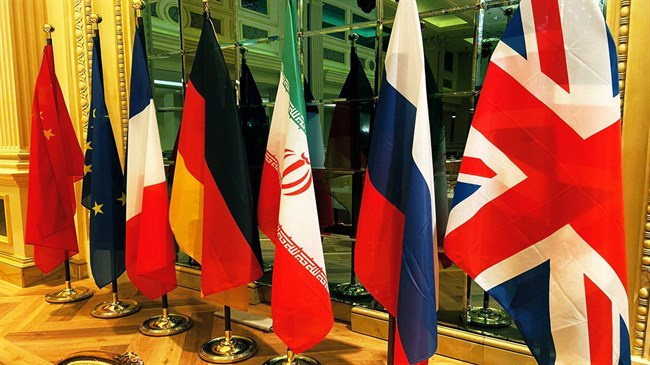Biden under pressure of nuclear agreement’s opponents, proponents

Amid pressures from those for and against a nuclear deal with Iran, the Americans are still reviewing the European Union’s proposed draft of a potential final Vienna agreement to submit their viewpoints on Tehran’s response to the text.
The U.S. foot-dragging comes as Iran submitted its conclusion about the draft of the potential agreement seven days ago to the EU foreign policy chief Josep Borrell.
In remarks at a university event in the northern Spanish city of Santander on Monday, Borrell described Tehran’s response to the bloc’s proposal as “reasonable”.
He added the EU is waiting for the U.S. response, expressing hope that it would allow the sides to conclude the negotiations.
“I hope that this would take place, but cannot say for sure that it will happen. The [U.S.] response should have been submitted by now. A meeting had been scheduled to be held in Vienna by Sunday, but it will probably be held by the end of this week.”
In addition, Russia’s top negotiator to the talks on the revival of the 2015 nuclear deal, Mikhail Ulyanov, said on Monday, “Let’s be hopeful that reviewing the proposals in the United States would not take so long.”
Over the past few days those who are opposed to the nuclear agreement inside and outside the United States, with the Israeli regime on top of them, have intensified their pressures on the Biden administration. It was in reaction to the same pressures that a U.S. news agency reported that the Biden administration has been seeking to convince Israelis that no new concession has been granted to Iran.
At present, it appears that, in reaction to the opposing pressures, those who favor a Vienna agreement have also launched efforts to persuade Biden to sign the deal. Recent talks between the U.S. president and heads of the E3 group of France, Britain and Germany can be construed within the framework of such efforts. The While House on Sunday announced in a statement the news of a phone conversation among Biden, French President Emmanuel Macron, German Chancellor Olaf Scholz and British Prime Minister Boris Johnson, saying, they discussed the ongoing negotiations on Iran’s nuclear program, bolstering support for partners in the Middle East and joint efforts to confront and restrict what they referred to as Tehran’s destabilizing regional activities.
Also on Monday, CNN's chief national security correspondent Jim Sciutto quoted a senior U.S. State Department official as saying on his Twitter account that “we’ve closed some gaps but some still remain”.
Moreover, Iranian Foreign Ministry spokesman Nasser Kanaani said at a weekly presser on Monday, “So far, we have not received any response concerning the EU’s proposals from the United States.”
He added the latest round of the negotiations could be regarded as fruitful when the European side announces that it has received the U.S. response.
Source: Iran Daily

